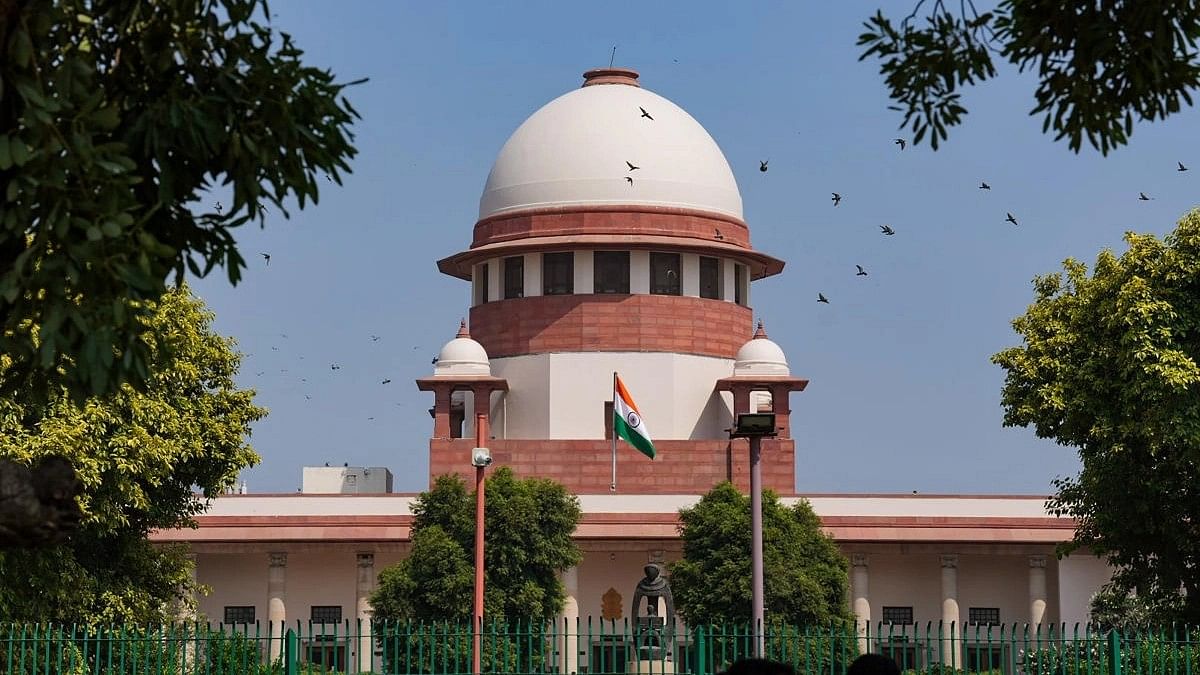
Supreme Court.
Credit: PTI Photo
The Supreme Court has asked the public authorities to ensure maintaining and publishing of relevant information as mandated under Section 4 of the RTI Act, 2005.
A three-judge bench led by Chief Justice of India D Y Chandrachud directed the central information commission (CIC) and the state information commissions (SIC) to ensure proper implementation of the provisions of the Right to Information Act.
"We are of the opinion that the purpose and object of the statute will be accomplished only if the principle of accountability governs the relationship between ‘right holders’ and ‘duty bearers’,” the bench, also comprising Justices P S Narasimha and J B Pardiwala, said.
The court's judgement came on a PIL by Kishan Chand Jain who sought a direction to the authorities to implement the mandate of Section 4 of the Right to Information Act, 2005.
Section 4(1) related to the maintenance of all public records, duly catalogued and indexed for easy accessibility of the information; publishing particulars of the organisational structure, functions and duties of officers, procedures that are followed for decision-making, salary structure, budget allocation, publication of facts relating to policies and announcements which includes providing reasons for quasi-judicial decisions.
Sub-section (2) mandated the public authority to take steps for providing information under clause (b) of sub-section (1) suo motu and further disseminate the said information for easy accessibility to the public.
"We direct that the Central Information Commission and the State Information Commissions shall continuously monitor the implementation of the mandate of Section 4 of the Act as also prescribed by the Department of Personnel and Training in its Guidelines and Memorandums issued from time to time,” the bench said.
The court said the circle of representative democracy connects the supremacy of the Parliament with the rights of the citizen by ensuring that the state performs its obligations.
The bench said the central and state information commissions have a prominent place, having a statutory recognition ‘to promote transparency and accountability in the working of every public authority'.
“While declaring that all citizens shall have the ‘right to information’ under Section 3 of the Act, the co-relative ‘duty’ in the form of obligation of public authorities is recognised in Section 4. The core of the right created under Section 3 in reality rests on the duty to perform statutory obligations. Public accountability is a crucial feature that governs the relationship between ‘duty bearers’ and ‘right holders’,” the bench said.
The bench said Section 25 of the Act, gloriously integrates ‘the right to information’ of a citizen with the collective responsibility of the government to the legislature under Article 75(3) or 164(2) of the Constitution.
The petitioner, for his part, said that only 33 per cent of the public authorities have got transparency audits conducted in the last four years. He also claimed that apart from the poor implementation of third-party audits, 33 per cent of public authorities which had their transparency audits conducted performed badly, clearly evidence that quality and quantity of proactive disclosure were not in accordance with Section 4.
“From the information made available to us, one thing is evident. The system needs the concerned authority’s complete attention, followed by strict and continuous monitoring. It is in this context that the functioning and duties of the Central and State Information Commissions assume utmost importance," the bench said.
